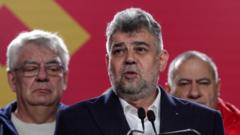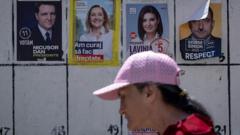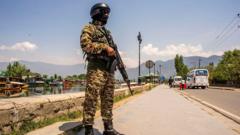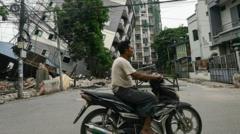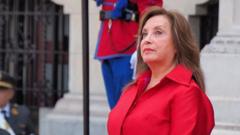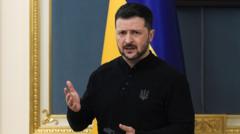The recent revelation of a coordinated effort to influence Romania's presidential elections through social media and cyber-attacks has brought unprecedented attention to the integrity of the electoral process, as authorities investigate the role of external state-sponsored actors.
Cyber Warfare and Election Manipulation: Romania's Struggle for Integrity

Cyber Warfare and Election Manipulation: Romania's Struggle for Integrity
Romania faces significant electoral interference and cyber threats in its presidential race, raising questions about the influence of external actors.
Romania is currently grappling with the fallout from allegations of substantial electoral interference and cyber-attacks as it heads into the second round of its presidential elections. Authorities have indicated that a sophisticated campaign aimed at influencing the election was conducted largely via TikTok, with evidence suggesting the involvement of a state-sponsored actor. The country's domestic intelligence service reported that the recent political ascent of Calin Georgescu—who is known for his far-right and NATO-skeptic views and has lauded Vladimir Putin—can be attributed to a meticulously planned social media initiative that relied on influencers and coordinated messaging.
Georgescu's unexpected rise to prominence has raised eyebrows, particularly since he had previously been relatively unknown before securing his position in the first round of voting. Romanian intelligence suspects that the campaign was orchestrated from "external locations," thus circumventing local controls. The disclosure of these findings comes just days before the pivotal second round of voting, as outgoing President Klaus Iohannis released declassified documents revealing that content promoting Georgescu on TikTok had been extensively promoted without the requisite election labeling, violating both TikTok's policies and Romanian electoral law.
In a dramatic statement, Georgescu has asserted that these intelligence revelations are part of a conspiracy to undermine his candidacy. He has denied any involvement in or knowledge of the influencers or financial backers referred to in the intelligence reports, declaring, “I think it’s the first time in the history of the world when a state is organising an action against a candidate to stop him from running.” The reports detail how a single TikTok account allegedly disbursed $381,000 within a month to promote Georgescu, contrary to his claims of having spent "zero" on election advertising.
Moreover, the documentation hints at significant cybersecurity breaches, including the theft of access data from electoral websites, with over 85,000 attempted hacks directed at electoral data around the election date. The report suggests these activities exhibit characteristic techniques of state-sponsored cyber-attacks, raising alarm about their potential impact on Romania's electoral integrity.
In the wake of these disturbances, Romania's Prime Minister Marcel Ciolacu, who finished third in the race, announced his support for reformist candidate Elena Lasconi, as the prosecutor's office continues to assess the implications of the intelligence findings. Ciolacu voiced his hope that the evidence uncovered would prompt appropriate actions against those responsible and reaffirmed that the electorate desires a continued commitment to Romania's European development.
As public concern mounts, a pro-EU protest has been organized, shining a light on the wider implications of foreign influence in domestic politics. Meanwhile, Georgescu cautioned against unrest, referring to the 2014 Ukrainian revolution, urging serenity and social unity for the nation. The growing involvement of external actors, particularly pointing towards Russian interference, has thrust Romania's electoral process into an urgent spotlight as the country navigates through this turbulent political climate.

